In autumn of last year, I was given the honour of becoming a judge for the “On the wings of technology” poetry festival. Along with my fellow judges, we watched video poems form young people, on the subject of migration and detention. The festival was created by the organisation, Transpoesis under the umbrella of The International Refugee Poetry Network – who work to give a voice to refugees and poets all over the world.
In this edition of “5 Questions”, one of the three competition winners, spend some time thinking about his craft, about what motivates him and about his love of language. He is a rising star on the refugee poetry scene and deserves our eyes and ears.
I present David Ndagijimana,
Tanya Akrofi
Konya Shamsrumi: What is the process of writing a poem like for you? Is it a lot of hard work or easy?
David Ndagijimana: This is my process for writing poetry: Firstly I analyse what is needs to be spoken and known about by the society also that which can save people’s lives . After analysing this , I take my lovely pen and paper and start writing a poem which talks about what I’ve analyzed.
I often write during the evening time by sitting alone in my house where no one can disturb me and after writing, I memorize it.
Finally when I have money , I go in studio to record my poem, because when its recorded, it can be listened by many people per day.
On one hand ,Writing a poem is not hard work for me, because it’s my talent.
On another hand it’s very difficult when I miss money for recording and filming. This is
A big problem for me as a refugee child: to find money is not easy.
Konya Shamsrumi: Please describe your sense of identity in this or any possible world in imagery or metaphor?
David Ndagijimana:
I'm the black lion of my lions, Fireless to fight for my lions, Sininyegeza mumbari , Urugamba rwakamvye, Ni ryajwi ry' Intare, Nterera mugahogo, Umwansi akampunga , Umukunzi akansanga, Akivuga umuhinga, Yavukanye ubuhinga, Akurana akaranga, I'm the black lion , Nickname no stress , Un poet pas comme les autres. (translation) I'm the black lion of my lions, Fearless to fight for my lions, I can't hide myself near the fires, When the battle is over , I shout loudly with the voice of lion, Enemy runs away from me, A friend approaches me , And talk about a person, Who was born skilled , And grew up with culture, I'm the black lion , Nickname no stress , A poet like no other.
Konya Shamsrumi: If any of your poems could literarily save a person’s life, which poem would it be and can you describe the person whose life you think it would have saved?
David Ndagijimana: As a known poet ,who has won different poetry competitions, I can’t miss a poem which saved people’s life, << MY COUNTRY >>this is one of my poems which saved people’s life, like refugees in different camps. When refugees are listening to this poem they think again that even though sometimes we leave home, friends and parents, one day everything will be good.
I give them a hope by saying that, it won’t be endless unhappiness and permanent struggles. That’s why people loved my poems for sure. I’m happy to rebuild the destroyed hearts of my people.

Konya Shamsrumi: What does Africa mean to you, as potential or reality?
David Ndagijimana: Africa means my home to me, source of my life. Also I’m proud of being an African child. I know Africa as a beautiful Continent , but what is really sad , most Africans underestimate themselves because they are busy building the culture which is not theirs. In addition to that , I know Africa as home of talented children but without support, Africa is weak to support them. this is a big problem for those children because they think to fly to other continents in order to see how they talents can be known.
Konya Shamsrumi: Could you share with us one poem you’ve been most impressed or fascinated by? Tell us why and share favorite lines from it.
David Ndagijimana:
A baby is European He does not speak our tongue He is cross when the mother Understands him not. A baby is European He is always very sensitive The slightest scratch on his skin Results in an ulcer (traditional Ewe poem)
I’ve been impressed by this poem because the poet was showing Africans how they despise their own culture by hating their languages, changing their skin colour and behaving as though they are Americans, while they are Africans.
David Ndagijimana (nicknamed ‘No Stress’), is a poet and playwright originally from Burundi. He now lives in The Mahama Refugee Camp in Rwanda. His poems talk about refugee life, social cohesion and African culture. His Youtube channel can be found by searching his name.






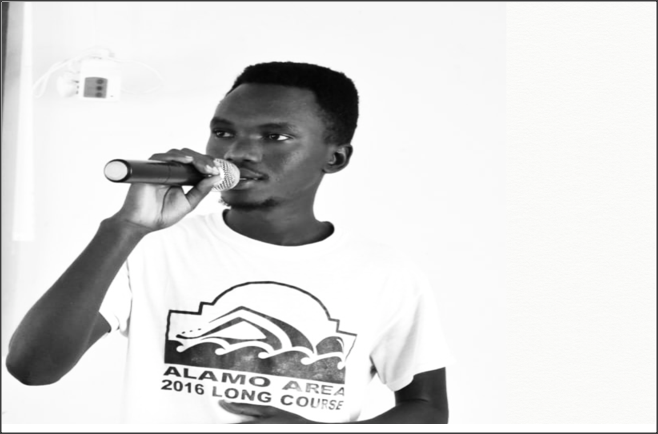
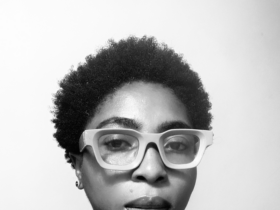
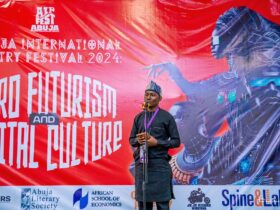
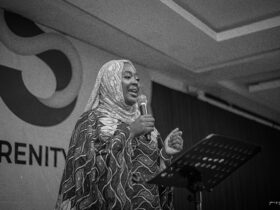
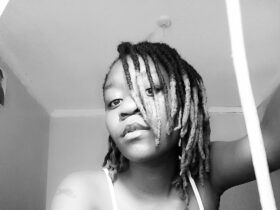
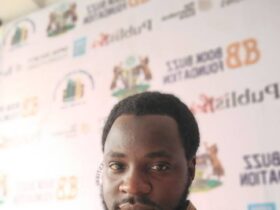

Leave a Reply